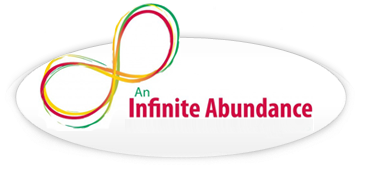The fourth of a series of Autoimmune Disorders. My reasons for this series is twofold. First, to make people aware of the many Autoimmune Disorders and to give some history of the well known or more prevalent ones. It is noted that 1 in 5 Americans have been diagnosed with at least one Autoimmune Disorder, of which 75% are women. Second, allowing people to be aware, especially those who are affected by Autoimmune Disorders, that they don’t need to live with the residual aches and pains, inflammation, stress, depression, and anxiety.
There are alternative options that work alongside conventional therapies. My focus, as a Reiki Master Teacher/Practitioner and Wellness Advocate, is to educate and better help those who are suffering needlessly. I teach a class on the benefits of Reiki Energy Healing for those who have been diagnosed with Autoimmune Disorders. For more information and to register, please contact me at 860-357-5263.
Fibromyalgia
Fibromyalgia syndrome affects the muscles and soft tissue. Symptoms include chronic muscle pain, fatigue, sleep problems, and painful tender points or trigger points, which can be relieved through medications, lifestyle changes and stress management.
What Is Fibromyalgia?
Fibromyalgia is the second most common condition affecting your bones and muscles. Yet it’s often misdiagnosed and misunderstood. Its classic symptoms are widespread muscle and joint pain and fatigue.
There’s no cure. But a combination of medication, exercise, managing your stress, and healthy habits may ease your symptoms enough that you can live a normal, active life.
Causes
Doctors aren’t sure what causes it, but some think it’s a problem with how your brain and spinal cord process pain signals from your nerves.
We do know certain things suggest you’re more likely to get it:
- You’re a woman.
- You have another painful disease, such as arthritis, or an infection.
- You have a mood disorder, like anxiety or depression.
- You were physically or emotionally abused or have PTSD.
- You rarely exercise.
- Other family members have it.
Symptoms
Simply put, you ache all over. Common symptoms include:
- Muscle pain, burning, twitching, or tightness
- Low pain threshold or tender points
- Draining fatigue
- Trouble concentrating and remembering, called “fibro fog”
- Insomnia or not sleeping well
- Feeling nervous, worried, or depressed
Fibromyalgia can feel similar to osteoarthritis, bursitis, and tendinitis. But rather than hurting in a specific area, the pain and stiffness could be throughout your body.
Other fibromyalgia symptoms can include:
- Belly pain, bloating, queasiness, constipation, and diarrhea (irritable bowel syndrome)
- Headaches
- Dry mouth, nose, and eyes
- Sensitivity to cold, heat, light, or sound
- Peeing more often
- Numbness or tingling in your face, arms, hands, legs, or feet
Diagnosis
Your doctor will examine you and ask you about your past medical issues and about other close family members.
There’s no test that can tell you that you have fibromyalgia. Instead, because the symptoms are so similar to other conditions, your doctor will want to rule out illnesses such as an underactive thyroid, different types of arthritis, and lupus. So you may get blood tests to check hormone levels and signs of inflammation, as well as X-rays.
If your doctor can’t find another reason for how you feel, they’ll use a two-part scoring system to measure how widespread your pain has been and how much your symptoms affect your daily life. Using those results, together you’ll come up with a plan to manage the condition.
Treatment (conventionally)
Depending on your symptoms, your doctor may prescribe pain relievers, antidepressants, muscle relaxers, and drugs that help you sleep.
The three drugs approved specifically for fibro pain are:
- Duloxetine (Cymbalta)
- Milnacipran (Savella)
- Pregabalin (Lyrica)
- Over-the-counter painkillers may help, too. Stronger medicines, like opioids, tend not to work well in the long run, and you could become dependent on them.
- Regular moderate exercise is key to controlling fibro. You’ll want to do low-impact activities that build your endurance, stretch and strengthen your muscles, and improve your ability to move easily — like yoga, tai chi, Pilates, and even walking. Exercise also releases endorphins, which fight pain, stress, and feeling down. And it can help you sleep better.
- You can try complementary therapies, including massage, acupuncture, and chiropractic manipulation, to ease aches and stress, too.
- A counselor, therapist, or support group may help you deal with difficult emotions and how to explain to others what’s going on with you.
What Are the Holistic and Alternative Modalities for Fibromyalgia?
Reiki Energy Healing is one of the holistic and alternative modalities to help decrease or release residual inflammation, aches and pains, and mental and emotional stresses due to chronic Autoimmune Disorders.
Reiki supports and enhances the body’s ability to heal itself. It works equally well whether it is used to help accelerate the body’s healing process while recovering from illness or as a form of preventive self-care. It is one of the most powerful techniques known for alleviating stress, anxiety, and pain. It naturally creates deep states of relaxation and feelings of well-being. Reiki supports and strengthens the immune system’s ability to fight infection of any kind, including viruses and bacteria. It is not just for treating physical problems. It works with the body’s natural healing wisdom to restore states of inner peace and balance at all levels… physical, emotional, mental, and spiritual.
Those affected with Autoimmune Disorders quite often deal with stress, anxiety, depression, lack of self-confidence and self-esteem, toxic overload from pharmaceutical medications, lack of mobility, and/or decreased social activities. Reiki can release these symptoms, increase mobility, and facilitate a return to a healthier and happier lifestyle.
Other modalities may include meditation, sound healing, pranic healing, crystal healing, EFT/Tapping, yoga, qi gong, acupressure/acupressure, and dietary changes.
Information on Crohn’s Disease is from WebMD.com


